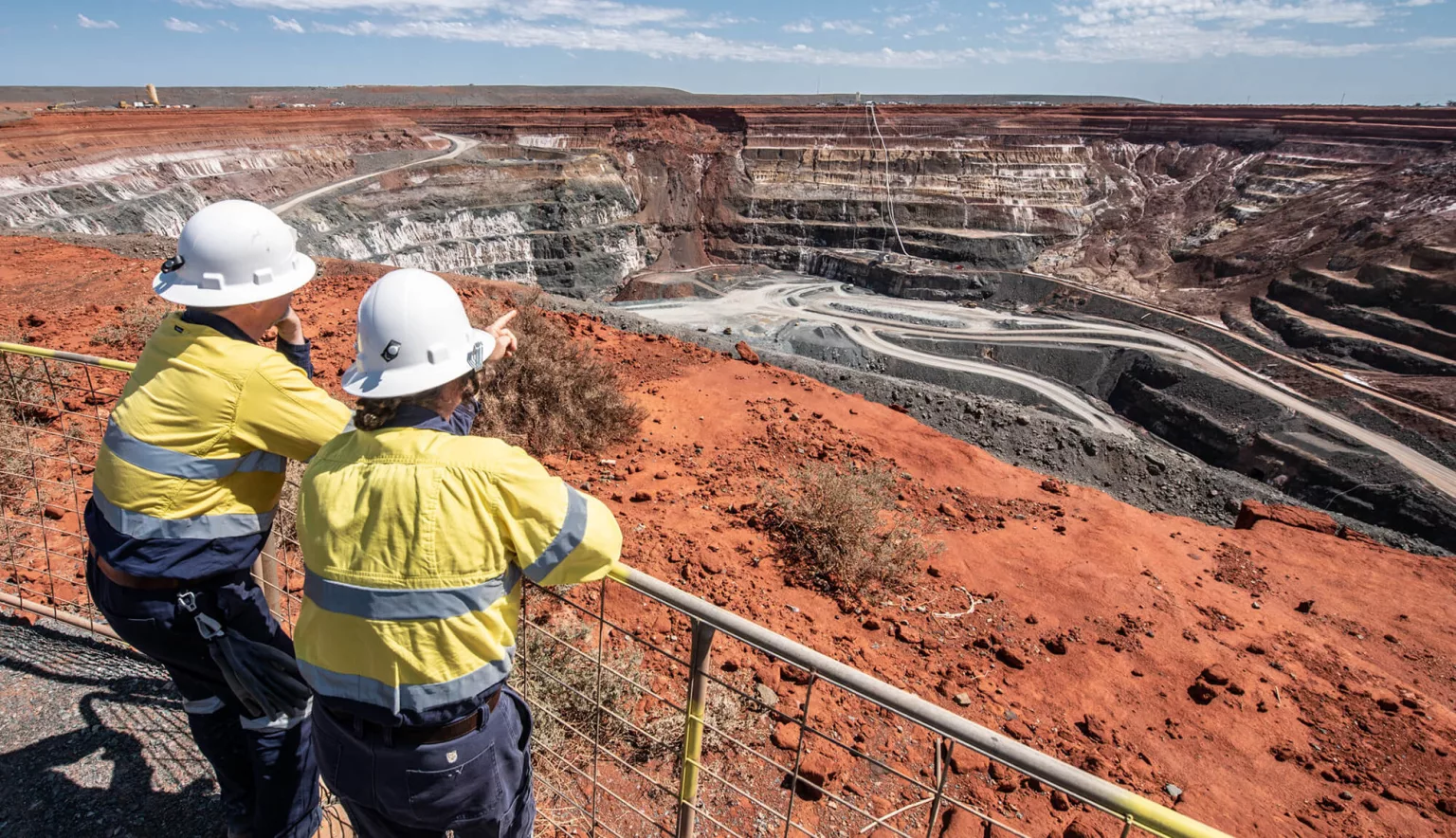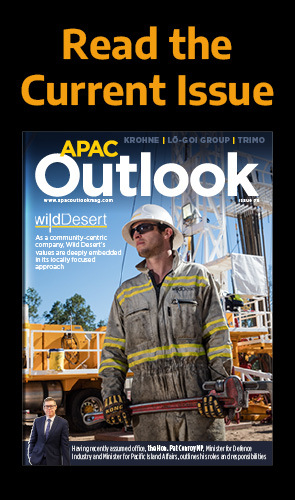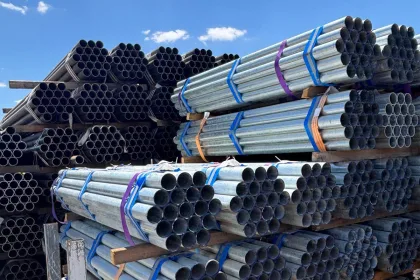Gold Fields Australia showcases the potential of employee, environment, and community-centric business, we spoke to Stuart Mathews, Executive Vice President: Australasia, to learn more.
CORE AND COMMUNITY
With 140 years to its name, Gold Fields continues to be a key player in the international gold mining industry.
The firm places innovation and local communities at the fore and drives the promotion of environmental wellbeing through impactful investments in sustainability practices – developments that place it above and apart from its industry competition.
In a positively unorthodox way, and despite being one of the largest gold producers in the world, Gold Fields places its core values above all others and incorporates each of these into every aspect of its business. The firm focuses on becoming the best, rather than the biggest, gold mining firm on the globe.
A change to the revenue-focused aims of the gold mining industry, the company aims to align its key values alongside that of profit so that it benefits all aspects involved with the production process: the growth of business, the inclusion of community, and the preservation and promotion of the environment.
Its head office is based in Johannesburg, South Africa, and oversees four regions of the business crossing multiple continents, including South Africa, the Americas (Chile and Peru), West Africa (Ghana), and Australasia – the latter region being the third largest gold producer in the nation.
“The firm’s Australian region embraces the vision and values of the company,” begins Stuart Mathews, Executive Vice President of Gold Fields Australia (GFA).
GFA produces just over one-million ounces of gold annually and is responsible for 44 percent of the broader group’s international gold yield, with approximately 1700 direct employees across four mines and regional offices. This makes the Australia branch an intrinsic part to the success of the wider company on the international stage.
It was Mathews’ interest in geology that led him to a career in the gold mining industry.
Initially inspired by his father’s own interest in geography and the process of geographical formations, Mathews went on to study geology at university and became an underground mine geologist after graduating with a masters in the field.
His work covered multiple areas of geology, such as mine geology, production, and general operations management, that took him around the globe to work in a number of different nations, from New Zealand and Australia, to a variety of areas of South America, and Mexico. Mathews is proud to have worked in the mining sector for almost 30 years – eight of which he has spent with GFA.
The company has been operating in West Australia for a substantial 20 years since the acquisition of St. Ives and Agnew mines from Western Mining in 2001. In 2013 Gold Fields acquired the Granny Smith, New Holland, and Darlot mines from Barrick. In 2016, Gold Fields took 50 percent ownership in the Gruyere Gold Project and operating management of the mine in Joint Venture with Gold Road Resources.
“I think back to when we first bought old operations back in 2001,” he says. “The company was criticised regarding its market actions at the time. The question on other peoples’ minds: why would you be buying expired and aging mining assets?’
“I’ve been here a long time and haven’t been able to see the end of them. 20 years later and we still have those core assets in our portfolio, and they are producing very well – they still have significant life, provide consistency in production, and continue to yield great results.
“We have substantial tenements around our operating mines and, as long as we continue to invest at the right level of exploration, the mines remain sustainable for the long-term delivering growth of resources and reserves. We intend to be a compelling presence in Western Australia gold mining for a long time.”
The industry today reflects this success – Australian gold prices are at a record high. However, it’s not only gold that is being the focus of rising value in industrial mining activity.
The past year has seen a major uplift in the mining of silver, iron ore, and various alternative resources in industrial operations. Zinc, copper, and nickel are just some of the primary metals in the crosshairs of companies in the Australian region at the moment.
“Nickel usually has long protracted down periods, but when it goes up it rises well and continually for a short period,” Mathews informs us.
“We believe we’re starting to see signs that nickel is about the take off. That is direct competition for our business and gold in general because both metals share the same sort of mining methodology and will generate increased demand for professional and technical skills.”
SUSTAINABILITY INVESTMENT
GFA’s company values are no better represented than the positive aims it strives to incorporate in all areas of its business. One key value stands out above the rest as a paramount aspect to the mission-based function of the company.
Environmental sustainability is a primary focus of the firm’s current and future endeavours. Reducing its carbon footprint is a major aim for the firm, and it has taken multiple steps, and invested heavily, in ensuring that it moves into the future while continuing to be a greener organisation.
“Our vision and values are what attracted me to the company just about eight years ago.” Mathews tells us. “We can absolutely run a business on these values, and they are practically achievable, and they are incredibly beneficial to the company, the employees, and of course, the communities and environment where we operate.”
The firm produces 2.5 million ounces of gold per year that shows how the aspects of production efficiency and positive sustainable company values and practices can work alongside one another.
The company is also ensuring that there is a complete switch from carbon to renewable energies, that includes the reduction of the use of diesel in the business. Currently, five percent of GFA’s energy usage consists of diesel, with the amount set to drop further in the future.
“We do what we can to be the best in sustainable mining and being around for the long term,” Mathews elaborates.
“We ensure this continues on a daily basis, with real investment and a shared belief with our partners to reduce our carbon footprint. No matter how remote our sites are, we believe that we have a social responsibility to the local community and the environment, while managing our business around climate risk.
“We are acting on this responsibility now.”
GFA has carried out this promise of carbon-crackdown within its business through focusing on the incorporation of renewable energy alternatives to power machinery and operations.
“Gold Fields believes in getting diesel out of our business. Currently in Australia only five percent of our energy comes from diesel,” Mathews confirms.
This commitment from GFA showcases its active search and implementation of alternative ways of energising its operations, reinforcing the company’s sustainability-focused values for the betterment of communities and the environment. The company partnered with energy company EDL to carry out the development of a hybrid power solution for the Agnew mine comprising a four megawatt (MW) solar facility, and 18 MW wind farm, underpinned by natural gas.
The new power plant allows a substantial 60 percent of GFA’s energy for its on-site locations being made up of renewables, even reaching as much as 80 percent for multiple hours in optimal conditions – a high standard of business sustainability that is only moving forward and increasing. The investment at Agnew has also generated great motivation and pride from our employees.
At the Granny Smith mine we have also recently commissioned an eight-megawatt solar facility in partnership with Aggreko and a battery storage solution. The increased power was required as our mine was getting deeper and again provided a great opportunity to invest in a renewable and sustainable energy solution going forward.
“In order to provide our remote sites with energy solutions, the notion of running powerlines for hundreds of kilometres is not ideal,” Mathews elaborates.
“That’s why the solar facilities, and wind-power facility, have been so valuable. They have allowed two of our mine sites to run on renewable or alternative energy solutions across the board. In comparison, diesel now looks like a great expense; both financially, and of course, for the environment.”
And when it comes to company projects this sustainability aim is at the centre of developments – GFA is looking to decarbonise its mining operations throughout 2021 and beyond. This applies to each of the company’s active sites, including those under construction such as its new Solares Norte project based in Chile.
“We are also continuing our aggressive exploration of our four Australian sites. This will consist of an approximate investment of $75 million and should extend the reserve base and life of the mines. This is on top of our substantial sustainability investments,” Mathews explains.
PEOPLE-CENTRIC AND COMMUNITY BUSINESS
The quality operation of GFA’s mining sites is not only down to the utilisation of the latest industrial technologies, but also down to its hard-working employees. The company strives to ensure that employee recognition is a consistently integrated factor in the workplace, and that individual semi-autonomous leadership is implemented to provide workers with a truth behind their work – that they are the individuals that make GFA work.
“We have a recognition reward system for people that live and breathe the values of the company,” Mathews elaborates.
“We’re very big on empowerment, health and safety of our people. Two of the things we’ve implemented are the Courageous Safety Leadership (CSL) and Vital Behaviours (VB) programmes. The CSL programme transmits teachings and experiences from the management and the workforce straight down to the ground level and is an emotional day of personal commitment.
“The VB programme has been running for over six years now and focuses on involvement of the programme from the ground up with “story-telling” from our employees and identifying core behaviours that commonly lead to incidents, accident and harm.
“From there we develop vital behaviours to improve the health and wellbeing of all. Combined with CSL and VB, along with field level risk assessment and socialisation of safety in the workplace have driven our safety performance to best performance. Gold Fields in Australia are now leading the safety direction of the greater company.”
The firm’s people-centric values align with that of its community goals. With a focus on local community engagement, GFA holds key objectives related to, not only to provide employment to those local to company sites, but also to procure necessary resources and materials from local areas as well.
“Our mines are very isolated in areas of outback Western Australia, but our foremost commitment is to mutually benefit and support the areas of these operational sites. 25 percent of our procurement expenditure surrounds local communities, and through this we are conducting the right business practices to ensure the betterment of these communities,” Mathews comments.
With 2020 having been dominated by the global impact of the COVID-19 pandemic, GFA turned its focus to helping communities as much as it could.
“During this time of crisis, especially last year when it caught everybody unaware, we felt like people in the general community in Western Australia needed help,” Mathews tells us.
“We decided to provide some funding directly to them and took this opportunity to contribute $300,000 dollars to aid people, split between the food bank and medical services, including Lifeline mental health service and the Royal Flying Doctor Service.”
GFA is also involved in sports sponsorship aimed to attract and provide employment to young talent in the sector. Direct sponsorship of Football West (the main football body in Western Australia) has allowed the company to support the general community further, and actively promote healthy sport, competition, and exercise alongside the provision of potential future employment for many.
“We are going to grow our active presence at these sports events, such as setting up company tents, where people can talk directly to us about various careers and pathways into the resources industry,” Mathews explains.
“The industry isn’t just about geologists, engineers, and truck drivers anymore – it’s a lot broader. If you are an accountant, or biology degree, or if you have knowledge or experience of the energy sector there is potential for employment with GFA. And with technology becoming ever more present across varying industries that potential for widening the employment talent pool just gets bigger.”
2021 AND BEYOND
GFA has many aims and goals to work upon and reach by the end of this year and those that follow. The maintenance of quality operations and growth of yield is one of the key companyaims, and continuation of sustainability promotion and practices is deemed an absolute necessity. One of the primary goals for the firm is providing help to all those individuals within the local site communities of Western Australia that require it. Mathews ends on a positive note.
“A big delivery for us is that we have committed to a reconciliation action plan in Australia. We are one year into this journey, and it’ll take us about three or four years to deliver what we intend,” he elaborates.
“Within our indigenous and aboriginal people of Western Australia, we as a company are committed to acknowledging and actively promoting reconciliation, not just for ourselves, but for greater Australia. That includes recognising that the indigenous and aboriginal people represent approximately 2.5 percent of the national population and have been significantly disadvantaged over the last 200 years. To reconcile this, we are working with tribes to make a difference.”


































